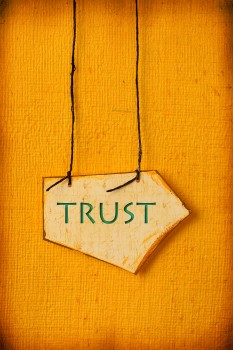There we were at my dining room table, discussing the future of GeniusShared — it was a conversation that was one part ideation and another part candid truth. While I absolutely excelled at the ideation part of the conversation, I failed miserably at the candid truth part.
Liz said “You don’t trust me!”
To which I replied “Yes I do — I just don’t trust myself.”
Liz said “You don’t trust me enough to hear yourself argue with me.”
Liz saw me hiding my truth and she called me on it. Kindly. Gently. And firmly. After all, trust is the hard truth spoken gently.
I just wasn’t getting it — so I asked Liz “What is trust?”
She took a deep breath and summoned her patience to say – “Trust is when I don’t need to think about who I am with you. And you don’t need to think about who you are with me.”
You see — it was the part of the conversation that required me to trust beyond Liz. Yet for a million reasons, that today no longer seem to matter, I chose to hide. The reality was that I needed to trust myself too. To trust that my ideas were good enough, that I was smart enough and to believe that my voice was an integral ingredient when it came to the partnership we were building. And because I did that — my voice couldn’t emerge.
It sounds so easy — but it wasn’t. At least not for me. The simple reality is that it took me months to see it. And to understand the power that comes from trusting myself enough to share my own truth.
Today, we have lots of different conversations related to GeniusShared, life, friends and the world. There’s never a shortage of areas for us to cover — and we have some of the most amazing discussions. Guess what? I no longer hide my thoughts during our conversations. I share them — without thinking about who I am. I just share myself. I do this because I know the difference it makes. And I’ve found my own way of saying what trust is — You need to be who you are and know that I’m not going to walk away because of it.
Jane Boyd is a Partner in GeniusShared. She is also the CEO of 45 Conversations Media & Education Ltd, a Canadian education and training company based just outside of Vancouver Canada. She works with educators, business, community and government in the areas of early learning, work-life, community development and employee engagement.




